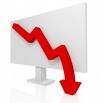BMW Sales Plunge, Honda Quits Formula One, DC Update
 |
FRANKFURT/TOKYO December 5, 2008; Michael Shields and Alastair Himmer writing for Reuters reported that global sales at BMW, the world's top premium carmaker, plunged by a quarter in November, and Honda backed out of Formula One racing on Friday as the economic downturn exacted a mounting toll on automakers.
With even well-heeled consumers keeping a tight grip on their wallets, group vehicle sales at BMW fell 25.4 percent to 96,570 units, led down by a 26.2 percent drop at the flagship BMW brand, it said.
Car sales across the globe have plummeted as consumers curb spending in the face of mass lay-offs and a credit crunch, pushing big U.S. carmakers to the brink and heaping pressure on their foreign rivals, too.
In Germany, Europe's biggest auto market, new car sales are expected to hit post-reunification lows this year and next before recovering somewhat in 2010, the VDA auto industry association forecast this week.
In Japan, Honda Motor Co delivered a major blow to Formula One by withdrawing from the sport with immediate effect.
Japan's number two carmaker is seeking to cut costs to combat the global economic crisis and concluded it would no longer bankroll the Formula One team and its estimated annual budget of $500 million.
Honda Chief Executive Takeo Fukui told a news conference a return to the sport could take time, and that there were no plans to continue as an engine supplier.
"This difficult decision was taken recently and was made in light of the quickly deteriorating operating environment facing the global auto industry," Fukui told reporters.
"Honda must protect its core business activities and secure the long term as widespread uncertainties in the economics around the globe continue to mount."
Detroit remains the epicenter of the consumer earthquake shaking the automotive world.
The chief executives of General Motors Corp and Chrysler LLC told the U.S. Congress on Thursday they would consider restarting merger talks if that was what it took to win their slice of up to $34 billion in emergency U.S. government aid.
"I would be very willing to look at it seriously," GM CEO Rick Wagoner told the Senate Banking Committee, adding that merger talks earlier this year were dropped on concerns GM did not have the financing to merge with Chrysler.
Chrysler CEO Robert Nardelli said his job would likely be the first to go in a merger with GM, but if that would save Chrysler and its workers, "I would do it."
The chiefs of the Big Three automakers, including Ford Motor Co CEO Alan Mulally, pledged to refocus on higher fuel efficiency vehicles and lower production costs.
But they encountered deep skepticism among lawmakers who are suspicious of such promises, given the companies' past failures to wean themselves off gasoline guzzlers and to make innovative cars that consumers want to buy.
"I don't trust the car companies' leadership," said New York Democratic Sen. Charles Schumer at the hearing. But in a comment reflecting many lawmakers' sentiments, he added, "We can't let the industry fail.
Additional reporting for Reuters by by John Crawley and Kevin Drawbaugh in Washington, editing by Will Waterman


